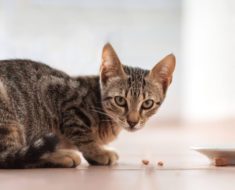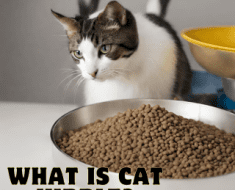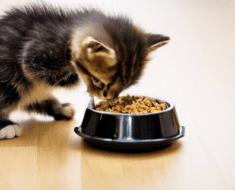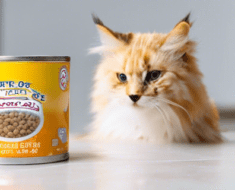Cats can typically survive without food for about one to two weeks. However, they may develop serious health issues after just a few days. 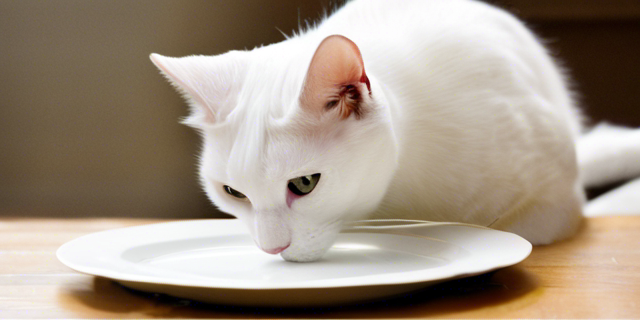 Cats are resilient creatures with a strong survival instinct, but going without food for an extended period can severely affect their health. This resilient nature might lead some owners to underestimate the necessity of a consistent and nutritious diet for their feline friends.
Cats are resilient creatures with a strong survival instinct, but going without food for an extended period can severely affect their health. This resilient nature might lead some owners to underestimate the necessity of a consistent and nutritious diet for their feline friends.
A cat’s body begins to use fat for energy in the absence of food, which can lead to liver damage known as hepatic lipidosis, a potentially fatal condition. Therefore, ensuring your cat’s regular access to food is essential for its well-being. Keep a close eye on their eating habits; sudden changes might indicate health problems requiring immediate attention. Catering to a cat’s nutritional needs is paramount to maintaining its health and happiness.
Survival Instincts Of Felines
The Feline Fasting Phase
When cats don’t eat, their bodies enter a fasting phase. Initially, they use stored glycogen for energy. After 24 hours, fat becomes their fuel. Cats have a robust fasting phase, allowing them to survive a few days without food. However, their need for water remains crucial. Here’s what happens during their fasting:- Day 1: Glycogen provides energy.
- Day 2: Body shifts to using fat.
- Day 3 and beyond: Surviving but health starts to decline.
Health Risks Of Prolonged Fasting
Extended periods of fasting can lead to severe health issues in cats. Their bodies start to break down non-fat tissues for energy, causing muscle loss and a weakened immune system.| Duration of Fasting | Possible Health Risks |
|---|---|
| 24-48 hours | Minor risks; dehydration concern |
| 3+ days | Risks escalate; potential organ damage |
| 1 week or more | Critical; life-threatening conditions |
Assessing Cat’s Health And Hunger
Recognizing Hunger Signs
Keep an eye on your cat’s behavior to spot signs of hunger.- Meowing more than usual or being more clingy
- Following you to the kitchen frequently
- Actively sniffing around their food area or bowl
- Pawing at where their food is usually kept
Medical Causes For Not Eating
Different factors can cause a cat to stop eating.| Medical Condition | Explanation |
|---|---|
| Dental Issues | Pain from tooth decay can make eating hard. |
| Stress or Anxiety | Cats may skip meals if they feel upset. |
| Digestive Problems | Issues like upset stomachs reduce the urge to eat. |
| Underlying Illness | Conditions like kidney disease affect appetite. |
Factors Influencing Fasting Duration
Age And Metabolism
Younger cats have fast metabolisms. They need regular meals to sustain growth. Older cats slow down. Their bodies are less forgiving when fasting. Illness can impact this too.- Young cats: Require more food and shorter fasting periods.
- Senior cats: May fast for slightly longer, but with risks.
Hydration And Its Role
Water is more critical than food. Cats without water can face severe health issues quickly.| Days without Food | Days without Water |
|---|---|
| Up to 2 weeks | Only 3 days |
- Always offer clean water alongside food.
- A dehydrated cat is in immediate danger.
- Check your cat’s hydration levels regularly.

Consequences Of Extended Starvation
Physical Impact On Cats
Extended periods without food can lead to many health issues in cats. Here are the key physical impacts:- Weight Loss: The most obvious outcome of starvation.
- Decreased Muscle Mass: Cats lose muscle before fat.
- Organ Failure: The liver suffers, potentially leading to hepatic lipidosis.
- Immune System Decline: Cats become more prone to diseases.
| Duration Without Food | Possible Consequences |
|---|---|
| 24-48 hours | Liver Stress |
| 3-5 days | Severe Health Risks develop quickly. |
Psychological Effects Of Hunger
Mental well-being is deeply connected to hunger. Consistent lack of food leads to:- Behavior Changes: Anxiety and aggression may appear.
- Stress: It can cause long-term psychological damage.
- Decreased Energy Levels: Cats may seem lethargic.
- Loss of Interest: In play or interactions with others.
Interventions And Care Strategies
When To Seek Veterinary Care
Immediate veterinary attention is crucial if a cat stops eating for more than 24 hours. Underlying health issues can escalate quickly in cats, so prompt care can be lifesaving. Signs to watch for include:- Lethargy or lack of movement
- Unexplained weight loss
- Vomiting or diarrhea
- Changes in water consumption
Feeding Strategies For Recovery
Once cleared by a veterinarian, gradual reintroduction of food is essential. Here are strategies to aid a cat’s recovery:- Start with small, frequent meals of high-quality, nutritious food.
- Incorporating wet food as hydration is key to recovery.
- Warm food slightly to enhance its aroma and appeal.
- If a cat refuses to eat, consider appetite stimulants under vet supervision.
- Monitor food intake and weight regularly.
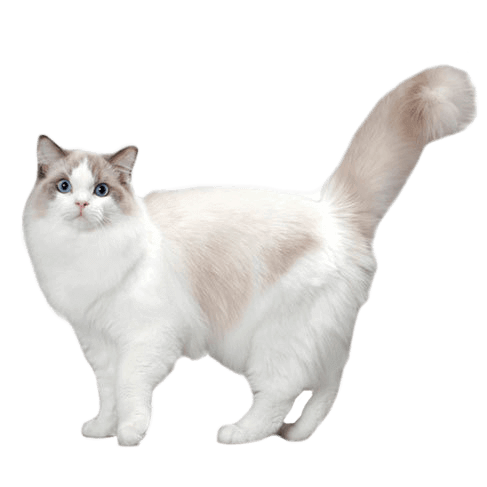
Frequently Asked Questions On How Long Can Cats Go Without Food
What Happens If A Cat Doesn’t Eat For 3 Days?
A cat not eating for three days can lead to serious health issues, including liver failure. Immediate veterinary attention is required to prevent potential fatal conditions.
Can Cats Go 24 Hours Without Food?
Cats shouldn’t go 24 hours without food. Fasting beyond that can trigger liver issues. Always ensure your cat has regular access to meals.
How Long Is It Safe For A Cat Not To Eat?
Cats should not go without eating for more than 24 hours. After this period, consult a vet immediately to prevent health issues.
Is It OK to Leave Cats Alone For 3 Days?
Leaving cats alone for three days is possible, but ensure they have enough food, water, and a clean litter box. Arrange for a pet sitter to check in daily for safety and companionship.
What Is A Cat’s Maximum Fasting Period?
Cats can typically survive without food for up to two weeks. However, they need water to avoid dehydration and serious health issues.
Conclusion
Understanding a cat’s nutritional needs is crucial for their well-being. Cats can survive without food for a limited period – typically no more than 2 weeks, although this varies. For optimal health, ensure they have regular access to a balanced diet.
If you notice any changes in appetite or feeding habits, consult a vet promptly to safeguard your feline friend’s health.
